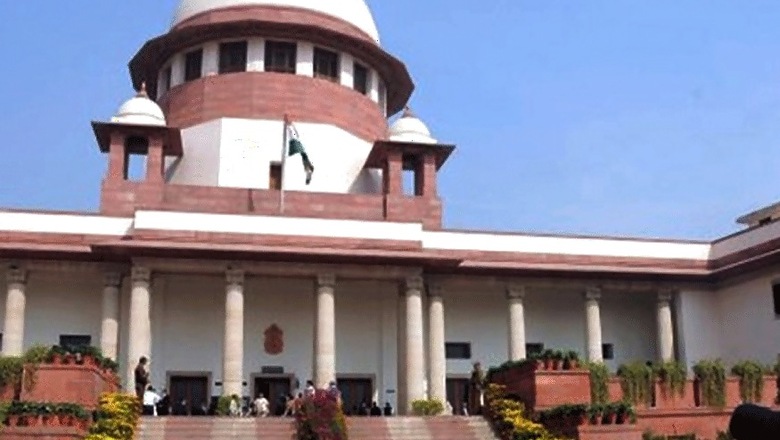
views
The Supreme Court on Friday decided to use technology more in judicial proceedings keeping in mind the prevailing COVID-19 situation and directed that now court summons and notices can be served on persons through 'emails, fax and instant messaging applications' like 'WhatsApp'.
The top court had earlier taken suo motu (on its own) cognizance of the difficulties faced by lawyers and litigants during lockdown due to COVID-19 and had decided to extend the period of limitation prescribed under laws for initiating arbitral proceedings and the cheque bounce cases with effect from March 15 till further orders.
A bench comprising Chief Justice S A Bobde and Justices R Subhash Reddy and A S Bopanna passed the order on the plea filed by Attorney General K K Venugopal in the case.
"For services of notices and summons, pleadings it has been seen that it was not possible during lockdown to visits postal offices we direct that such service (of notices and summons) may be done by email, fax, or through an instant messenger service," the bench said and refrained from using the name of 'WhatsApp' in the order.
It referred to the example of 'Xerox' and said that the name of the company has been used to convey the meaning of 'photostate'.
The top court allayed the apprehension of Venugopal that he was "not comfortable" with the service of summons and notices through WhatsApp as it has been a "completely encrypted platform".
It said that the "blue tick" feature of the messaging application can be used to prove the service of the court's notices under the Evidence Act and if the application is deactivated then it cannot be proven and hence such services can be used.
On the extension of limitation period for filing of cheque dishonor cases under section 138 of the Negotiable Instruments Act , the apex court Friday said that it will not intervene into this and the time period can be extended by the RBI only.
"Under Section 35A of the Banking Regulation Act, we don't consider it appropriate to interfere in the deadline prescribed by RBI. If RBI considers to extend, then they can do it."
The apex court then allowed the modification plea and said the 12 months-time period under the law to complete arbitral proceedings be allowed to remain in force.
The bench then dealt with a provision related to the functioning of Commercial Courts and said that the limitation period fixed for mediation will be extended by 45 days after lifting of the lockdown.
The apex court took note of the submission of senior advocate Shyam Divan that the lifting of lockdown was a vague term and even after its lifting, certain areas are still declared containment zones having the earlier problems.
The apex court said that it was a valuable suggestion and it would like to deal with the term "lifting of lockdown".
Earlier, it had extended the period of limitation prescribed under laws for initiating arbitral proceedings and the cheque bounce cases with effect from March 15 till further orders.
The Arbitration and Conciliation Act, 1996 and the Negotiable Instruments Act, 1881 provide fixed time periods to litigants to initiate arbitral proceedings and cheque dishonour cases. They become time-barred if filed after the statutory periods.
Prior to this, the top court on March 23 had invoked its plenary powers under Article 142 of the Constitution to extend limitation period of appeals from high courts or tribunals on account of coronavirus (COVID-19) pandemic.



















Comments
0 comment